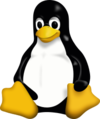Command line and DelftBlue basics 18 February 2025
cli101
18 februari 2025 09:30 t/m 17:00 - Locatie: Penguinlab 2e etage, gebouw 36 (EWI), Mekelweg 4, Delft | Zet in mijn agenda
After taking this course, participants will be able to fully engage in remote HPC systems using the command line.
The command line is a text based computer interface. Often when you are engaged in High Performance Computing it is the only interface available to you. This course is for anyone who wants to learn basic command line operations and how to automate simple tasks by chaining multiple commands together in a script. The course is aimed at students who have no or very little experience with the linux command line. In the second part of the course participants will learn how to put their new skills in practice when they learn how to run their programs on the DelftBlue Supercomputer.*
This course also acts as a primer for follow-up courses where basic command line skills are assumed.
At one time not so long ago, the command line was the only way to operate a computer. Fortunately, the rise of graphical interfaces has greatly democratized the use of computers, up to the point where you can now just sit on the couch and tap on a touchscreen to watch your favorite movie or send a quick message to your friends. We see a lot of students who have never used a command line before and might feel intimidated by the lack of graphical guidance. The command line is considered the domain of power users and specialists. We will argue that this is not the case, that the command line can often be more user friendly than any graphical tool, and that it is really not so intimidating if you invest just a little in the basics. This course was created to do just that. This course is NOT going to turn you into a command line guru. We will however set you up with all the basic skills you need to actually start working with a command line and get the job done.
As research gets more and more computationally intensive and thus needs to be outsourced to computational clusters these command line skills will be very valuable. You will learn how to interact with the DeltBlue supercomputer (or any supercomputer really) and learn what sets these systems apart from a regular computer. You will learn how to submit your programs to for execution. To aid your futher explorations after the course you will end the course with all these examples uploaded to your homedrive on DelftBlue.
After this course, you should be able to:
- Navigate the filesystem
- Create, rename, move and delete files and directories
- Use a terminal based editor (vi) to perform basic edits
- View the contents of files
- Log in to remote systems and transfer files and folders
- Run programs
- Create your own scripts, chaining multiple commands together
- Put it all together while you run your first programs on the DelftBlue Supercomputer*
*To accomodate participants that do not have a TU Delft affiliation we have setup our own computational cluster so that they can still follow along with all course materials.
Programme
09:30 - 09:45 Introduction
09:45 - 10:45 Part 1: Basic file operations and file editing
10:45 - 11:00 Break
11:00 - 12:30 Part 2: Working with remote systems
12:30 - 13:30 Lunch
13:30 - 14:30 Part 3: Creating scripts
14:30 - 14:45 Break
14:45 - 17:00 Part 4: Install and run your own scripts on a remote system
Programme subject to change

One day course
25 max. participants
Teachers:
J. Wallaart
D. Palagin
Costs:
€50,-
€25,- for BSc and MSc students.
including lunch and course materials, free for DCSE members.
Location:
Penguinlab, EWI B36.HB.2.130
Prerequisites:
Basic knowledge and experience with handling files in Windows explorer or MacOS finder is assumed.
Note:
This course is organized in the computer lab of the Mathematics department. You will log in to a prepared environment that contains all files needed for the in-class exercises.
(Running Linux on your own laptop is much encouraged, but you cannot use your own equipment for this course.)